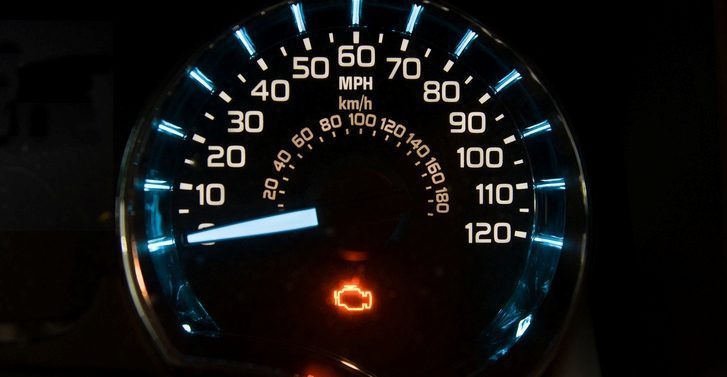If you notice liquid pooling under your car, it could be a sign of a leak. While some leaks are harmless, like condensation from the air conditioning system, others can indicate serious issues. Engine oil leaks are one of the most common problems drivers face.
Before assuming it is an oil leak, it is important to identify the type of fluid. Here are some common leaks and how to recognize them:
- Antifreeze Leak – A thick yellow, pink, or green liquid pooling under the engine.
- Power Steering Fluid Leak – A thin brown or red fluid is usually found near the front of the car.
- Water Leak – A clear, odorless liquid that is likely just condensation.
- Transmission Fluid Leak – A thick brown or red fluid, often near the middle of the vehicle.
- Brake Fluid Leak – An oily, clear to brown liquid that often appears near the wheels or passenger side.
While these leaks can cause concerns, engine oil leaks are the most common and should be addressed quickly to prevent costly engine damage.
How to Check for an Engine Oil Leak
If you suspect an oil leak but are unsure, follow these simple steps to confirm it:
- Check the ground under your car after parking for a while. Look for brown, greasy puddles near the front of the vehicle.
- Inspect the engine bay for oil residue around gaskets, seals, and hoses.
- Check your oil dipstick for an unusually low oil level, which could indicate a slow leak.
- Watch for warning lights on your dashboard, especially the oil pressure light.
- Examine undercarriage covers if your vehicle has one, as oil may be pooling behind it rather than dripping onto the ground.
If you find signs of a leak, it is best to schedule an inspection as soon as possible.
Common Causes of Engine Oil Leaks
Understanding why oil leaks happen can help you take action before they cause serious damage. Here are some of the most common reasons your car may be leaking oil:
Worn-Out Gaskets and Oil Pans
The oil pan and gaskets at the bottom of the engine help contain and circulate oil. Over time, these components can deteriorate, especially if you frequently drive on rough or debris-covered roads.
Incorrect Installation of Engine Components
Improperly installed parts can lead to leaks. Common mistakes include:
- Over-tightening gaskets, which can cause cracks and pressure imbalances.
- Loosely installed oil filters allow oil to escape before reaching the engine.
If you notice a leak after recent maintenance, it is best to have a professional inspect the installation.
Defective Valve Seals and Piston Rings
Not all oil leaks happen while your car is parked. If oil is leaking while you are driving, worn valve seals or piston rings may be the cause. When oil burns due to engine heat, it can create a strong burning odor, signaling a problem that needs immediate attention.
Ignoring an oil leak can lead to severe engine damage, requiring expensive repairs or even a full engine replacement. The best way to prevent this is through regular inspections and scheduled maintenance.
Signs Your Car Has an Oil Leak
Besides visible oil puddles, other symptoms indicate an oil leak:
- A burning oil smell inside or outside the vehicle.
- Blue or gray smoke coming from the exhaust, indicating oil is burning in the engine.
- Engine overheating, which happens when there is not enough oil to lubricate moving parts.
- Reduced engine performance, including sluggish acceleration or rough idling.
- Unusual noises, such as knocking or ticking sounds, are caused by increased friction inside the engine.
These warning signs should not be ignored, as they can indicate a serious issue that could lead to engine failure.
Can You Drive With an Oil Leak?
Technically, you can drive with a minor oil leak, but it is not recommended. Here’s why:
- Oil leaks can worsen over time, leading to severe engine damage.
- Oil dripping onto hot engine components can cause a fire hazard.
- Losing too much oil can result in catastrophic engine failure, leading to costly repairs.
- Oil leaks can harm the environment by contaminating soil and water sources.
If you suspect a leak, it is best to have your car checked immediately before the problem escalates.
Temporary Fixes for an Oil Leak
If you need to drive your car to a repair shop, here are some temporary solutions:
- Use an oil leak stop additive to slow down the leak until repairs can be made.
- Check and top off oil levels frequently to prevent engine damage.
- Clean the leak area and use a high-temperature sealant on minor gasket leaks.
- Place a drip pan under your car when parked to prevent oil from staining your driveway.
These are only short-term fixes. A professional repair is the only way to resolve an oil leak.
How to Prevent Engine Oil Leaks
Preventing oil leaks starts with routine vehicle care. Follow these tips to reduce the risk of leaks:
- Use high-quality synthetic oil that resists breakdown and lasts longer.
- Replace gaskets and seals before they become too worn.
- Have your engine regularly inspected for early signs of wear.
- Avoid overheating your engine, which can damage seals.
- Follow a strict oil change schedule based on your vehicle’s manufacturer recommendations.
Taking these precautions can help you avoid unexpected leaks and costly repairs.
Choosing the Right Mechanic for Oil Leak Repairs
Finding the right repair shop is just as important as getting the issue fixed. Here’s what to look for:
- Certified technicians who specialize in European cars.
- A shop with experience handling luxury brands like Audi, BMW, Land Rover, and Mercedes.
- A detailed repair estimate so you know exactly what you are paying for.
- Customer reviews and testimonials that reflect a history of quality service.
Hance’s European specializes in diagnosing and repairing oil leaks in high-end European vehicles. Our skilled technicians have decades of experience ensuring top-quality service.
Get Professional Oil Leak Repairs in Dallas
Our team is committed to providing expert care for your European vehicle, using state-of-the-art diagnostic tools and high-quality parts to ensure long-lasting repairs. If you suspect an oil leak, don’t wait until it turns into a bigger problem.
Schedule an appointment today with Hance’s European. Let us help keep your engine running smoothly and leak-free.


 BMW
BMW Mercedes
Mercedes Jaguar
Jaguar Land Rover
Land Rover Volkswagen
Volkswagen Porsche
Porsche Audi
Audi